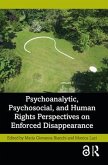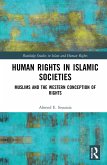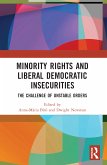For decades, framing an issue as a 'human rights' issue carried certain power and effect in politics and international relations, one that has been challenged by the recent rise of populist political forces. Ford explores the recent impact of populist politics on the universalist human rights project, in particular, how scholars have framed and responded to this challenge.
Ford offers a provocation to the human rights movement. Rather than 'what have populists done to human rights?', it asks 'how did we, the human rights movement, do this to ourselves?' How did fundamental protections for all become so easily scapegoated as 'us and them,' as claims of small, often foreign, minorities? Did human rights lose some vital connection to ordinary people's interests, their value taken as obvious and self-explanatory?
Looking forward, the book asks how - in a post-truth 'fake news' world - we might reimagine human rights as underpinning human flourishing as well as important constraints on public and private concentrations of power. Traversing relevant scholarly literature on the future of human rights and zooming out to look at wider patterns of political and diplomatic discourse, this book will speak to policymakers, diplomats, journalists, and human rights advocates - and all interested in the crisis of liberal democracies.
Ford offers a provocation to the human rights movement. Rather than 'what have populists done to human rights?', it asks 'how did we, the human rights movement, do this to ourselves?' How did fundamental protections for all become so easily scapegoated as 'us and them,' as claims of small, often foreign, minorities? Did human rights lose some vital connection to ordinary people's interests, their value taken as obvious and self-explanatory?
Looking forward, the book asks how - in a post-truth 'fake news' world - we might reimagine human rights as underpinning human flourishing as well as important constraints on public and private concentrations of power. Traversing relevant scholarly literature on the future of human rights and zooming out to look at wider patterns of political and diplomatic discourse, this book will speak to policymakers, diplomats, journalists, and human rights advocates - and all interested in the crisis of liberal democracies.
"A scholarly, sophisticated and clear-headed analysis of the real impact of the last decade's global 'populist backlash' against human rights, and the appropriate response by advocates for still-admirable universal principles. Ford challenges us, in effect, to be more introspective and less insulting - to rethink our inclination to blame the 'deplorables' for what too often have been shortcomings in our own sensitivity and priority-setting. It's a timely wake-up call."
Gareth Evans, Former Australian Foreign Minister, President Emeritus of the International Crisis Group, author of The Responsibility to Protect: Ending Mass Atrocity Crimes Once and For All, Distinguished Honorary Professor at the Australian National University
'The rise of human rights and the decline of colonialism, along with the prohibition on the use of force, were among the signature achievements of international law in the twentieth century. Yet the twenty-first has seen the rise of populist political forces that challenge human rights in form and substance, including explicit denunciations of that discourse by leaders of countries that were once among its greatest champions. In this book, Jolyon Ford examines populism and its impact on human rights, as well as how scholars and activists can and should respond. Importantly, that response goes beyond a counter-populist agenda and embraces the opportunity for a critical evaluation not only of what populism has done to human rights, but also what it has revealed.'
Simon Chesterman, Vice Provost (Educational Innovation), National University of Singapore
'The human rights movement has often not reacted well to criticism. This is particularly true of its response to populism. While populism confronts human rights with a great many challenges, it also provides an opportunity for those of us who continue to support human rights with an opportunity to radically evaluate what we stand for and why. This book offers a thoughtful and accessible scholarly tool for undertaking the kind of constructively critical self-analysis the human rights movement urgently needs to engage in. I recommend it to anyone who cares about human rights and social justice.'
Andrew Fagan, Essex Law School, Director, Human Rights Centre
Gareth Evans, Former Australian Foreign Minister, President Emeritus of the International Crisis Group, author of The Responsibility to Protect: Ending Mass Atrocity Crimes Once and For All, Distinguished Honorary Professor at the Australian National University
'The rise of human rights and the decline of colonialism, along with the prohibition on the use of force, were among the signature achievements of international law in the twentieth century. Yet the twenty-first has seen the rise of populist political forces that challenge human rights in form and substance, including explicit denunciations of that discourse by leaders of countries that were once among its greatest champions. In this book, Jolyon Ford examines populism and its impact on human rights, as well as how scholars and activists can and should respond. Importantly, that response goes beyond a counter-populist agenda and embraces the opportunity for a critical evaluation not only of what populism has done to human rights, but also what it has revealed.'
Simon Chesterman, Vice Provost (Educational Innovation), National University of Singapore
'The human rights movement has often not reacted well to criticism. This is particularly true of its response to populism. While populism confronts human rights with a great many challenges, it also provides an opportunity for those of us who continue to support human rights with an opportunity to radically evaluate what we stand for and why. This book offers a thoughtful and accessible scholarly tool for undertaking the kind of constructively critical self-analysis the human rights movement urgently needs to engage in. I recommend it to anyone who cares about human rights and social justice.'
Andrew Fagan, Essex Law School, Director, Human Rights Centre








